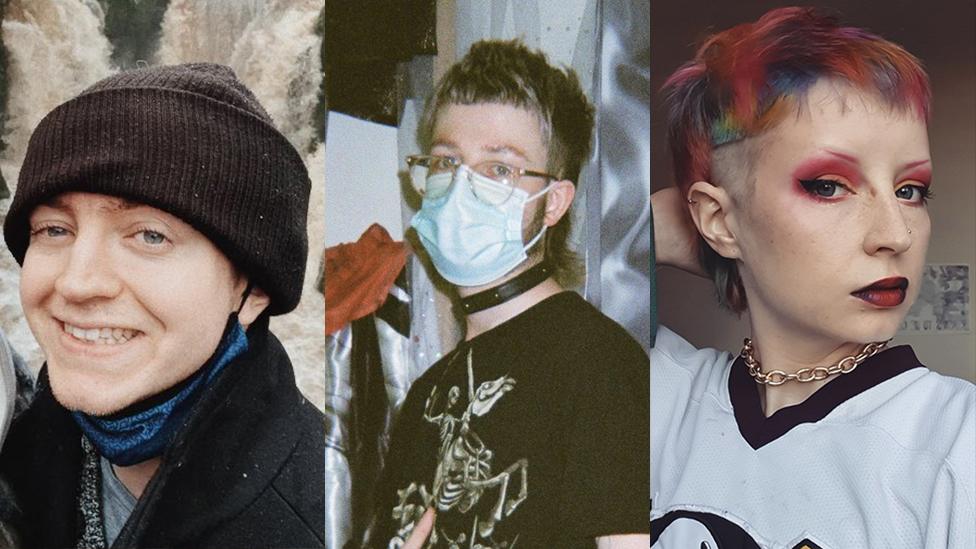LGBTQ: Inside Wales' first Ballroom community
- Published
There are many categories in Ballroom, including Old Way, New Way and Vogue Femme
"It's important to have safe spaces in Cardiff and Wales, and all around the world, and Ballroom allows you to be your most authentic self."
Leighton Rees is referring to the Welsh Ballroom Community - the first and, so far, only one of its kind in Wales for LGBTQ+ people.
A dancer and choreographer, Leighton founded the community when he wanted to learn more about the art form voguing and the history behind Ballroom.
"I wondered if there was a want for it in Cardiff," Leighton said. "So I put out a status on Facebook and it had a really overwhelming response, so [I thought] there needs to be a community in Wales."
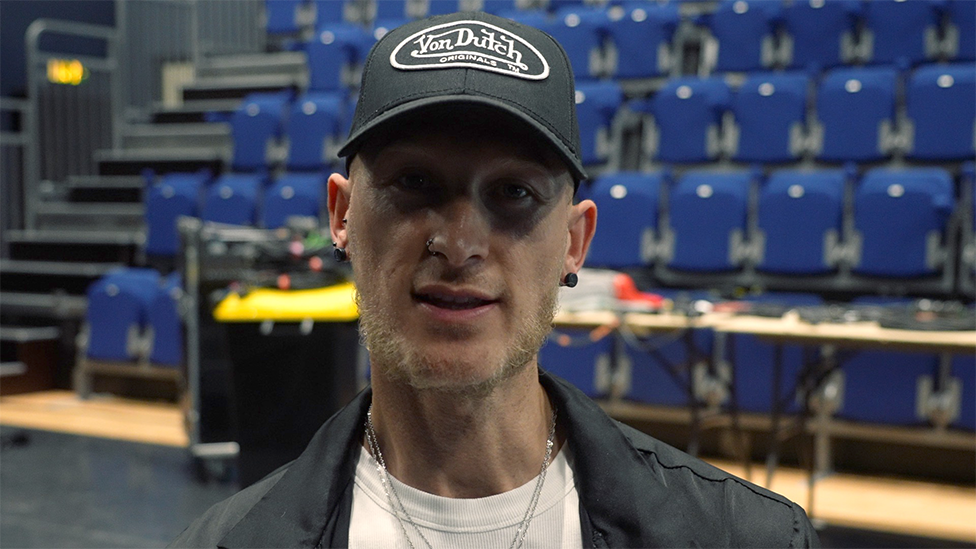
Leighton founded the community when he wanted to learn more about the art form voguing and the history behind Ballroom
The Ballroom scene, as it is also known, is where LGBTQ+ people come together to celebrate each other and take part in walk balls.
Balls are events where "houses" compete against each other by walking in front of a panel of judges and showcasing different categories such as face, body, runway and voguing.
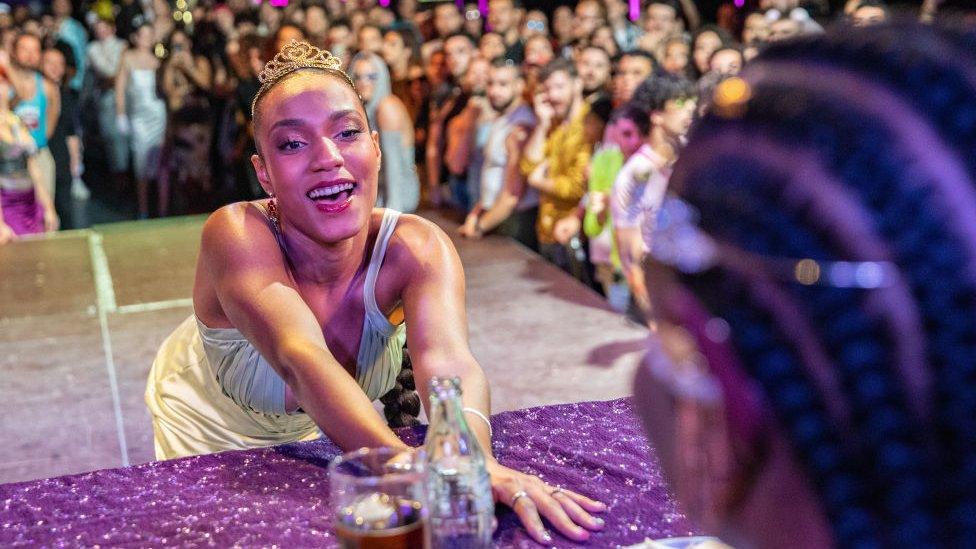
A participant gets up close with the judges at the Fairy Tale Ball in Madrid, Spain in 2022
One of the more popular categories is voguing, which has five elements - hand performance, catwalk, duckwalk, floor performance and spins and dips.
There are variations of voguing: Old Way, New Way, and Vogue Femme.
"Femme queens would have probably been 'this is all too masculine for me,' so then there's a style of vogue called Vogue Femme, which is a more feminine version of voguing," Leighton said.
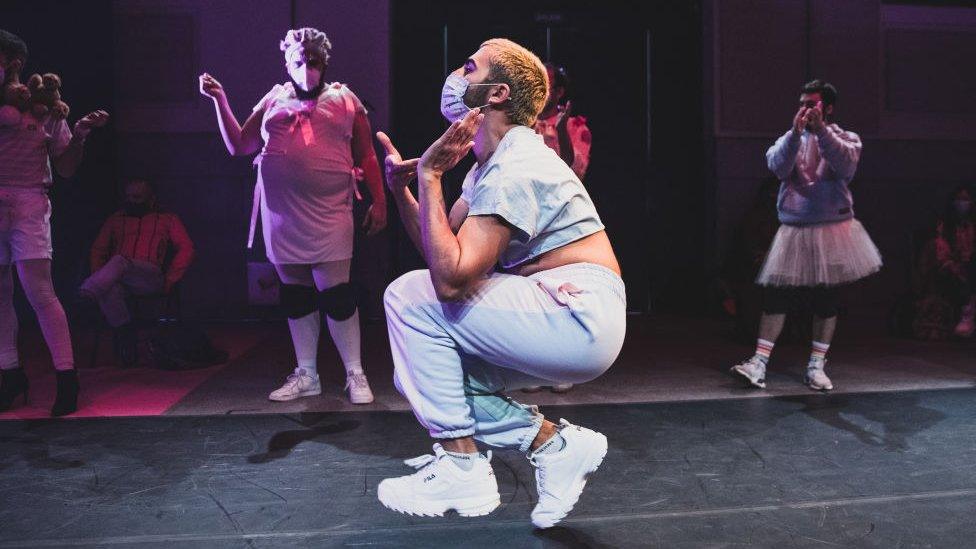
Voguing on stage during the Kiki Ball in Madrid Spain in 2020
Another category is FQ Realness, where contestants are judged on their ability to blend in with cisgender (when a person's gender matches the sex they were assigned at birth) women.
An alternative is BQ Realness, where the participants are judged on how well they can blend in with cisgender men in society.
There are also bizarre, best dressed, labels and sex siren categories.
Most, but not all, of those participating in Ballroom belong to "houses".
Houses are surrogate families that look after and protect members of the community who are, at times, ostracised and disowned by their biological relatives.
"So, the queer people of colour, who would have been disowned by their [biological] family members found [surrogate] gay mothers and fathers and brothers and sisters, who would have been in the community, then that would have turned into [their] chosen family," Leighton said.
Not everyone, however, is in a house.
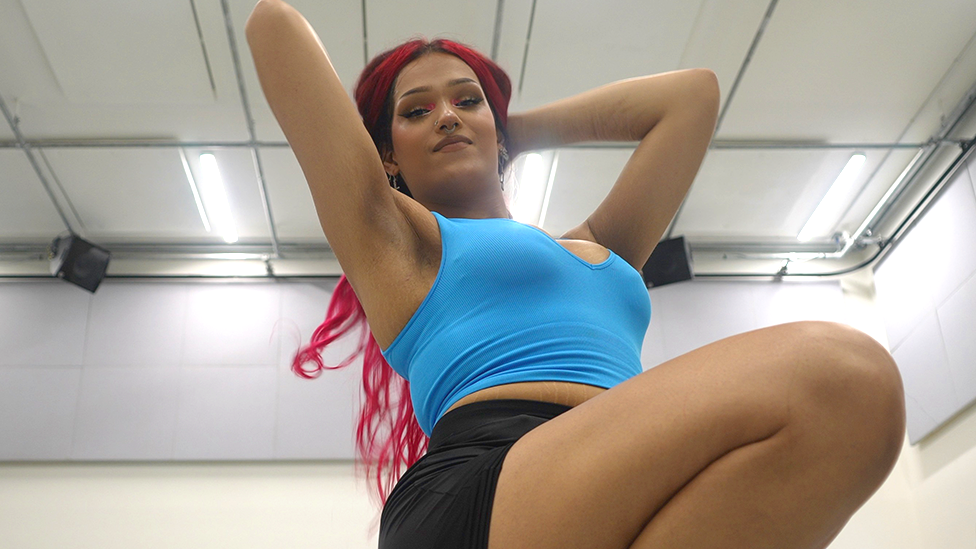
Alia says she is a 007 agent, meaning she is not a member of a house
"When you're not in a house you're a 007," said Alia, a femme queen in the community.
"We are free agents, but we still have our community that has our back, which is like our family."
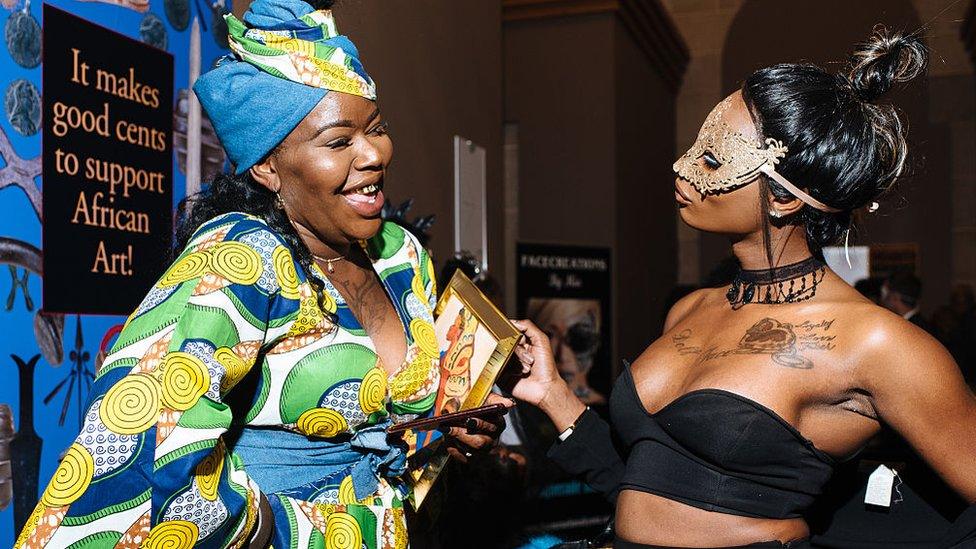
Participants prepare to perform at a Voguing Masquerade Ball in Washington DC
The first balls took places in 1920s New York, in what is often referred to as the Harlem Renaissance - an intellectual and cultural revival of African American literature, dance, music and art.
The Harlem Renaissance provided a safe space for queer African-Americans to gather and showcase their artistic works, and themselves, without fear of backlash or criticism.
Unable to take part in the drag queen pageantry and competitions of the time, black and Latino LGBTQ+ people decided to start their own, creating a safe space where anyone's sexual identify and race was not only welcomed but celebrated.
Balls were considered underground, subculture events that were held in opposition to the racism and discrimination they had experience at the more mainstream events.
Gaining popularity as the years progressed, Ballroom spread to other US cities like Washington DC, Baltimore, Philadelphia, St Louis and others.
The community, or scene, is now celebrated around the world, and is enjoying its latest incarnation here in Wales.
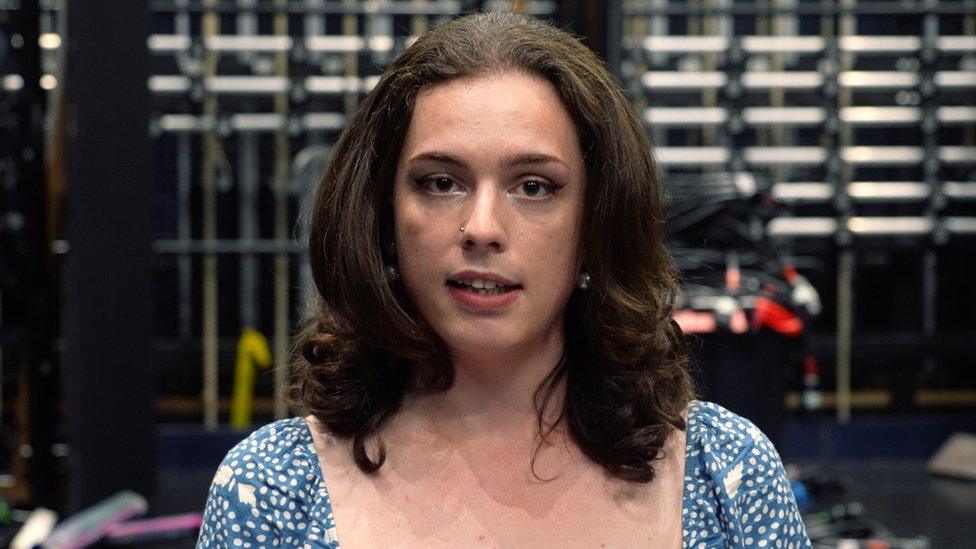
Malori did not come out as trans until joining the Ballroom community
"The Welsh Ballroom Community has definitely made itself known," said Malori, a transwoman who only came out after joining the Welsh Ballroom scene.
"We've been extremely busy. And I think you can feel it."
And the community will be busier than usual this weekend as Cardiff gears up to celebrate this year's Pride.
The Welsh capital is hosting a number of events over the weekend and throughout the month, and the Welsh Ballroom Community will be putting on a special show at Cardiff Castle.
Leighton explained: "In the castle we are going to be walking around in outfits made by local Welsh designers made out of football kits in collaboration with FA Wales.
"We will be looking fab as we always do, celebrating Pride and representing our Ballroom community."
Malori said: "It gives queer people in Wales a different outlet, a different something to aspire to.
"As trans people, and queer people more generally, there's a tendency to be quite isolated.
"You don't really have role models, and so that's the most important thing, really, is having a queer community."
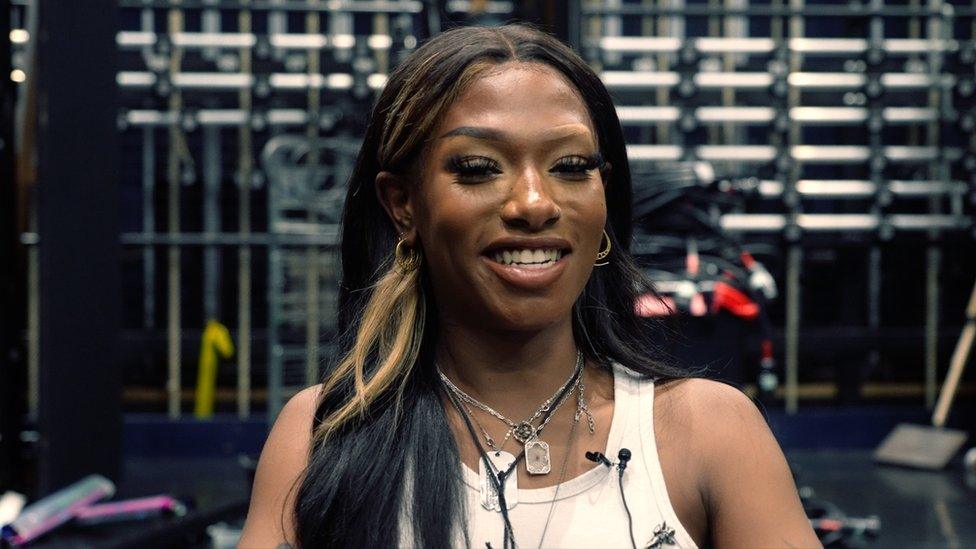
Rosy think Ballrooms are essential safe spaces for LGBTQ+ people
Femme queen Rosy agreed: "It's so important. People realise their sexuality in safe space like this.
"People realise how they really are."
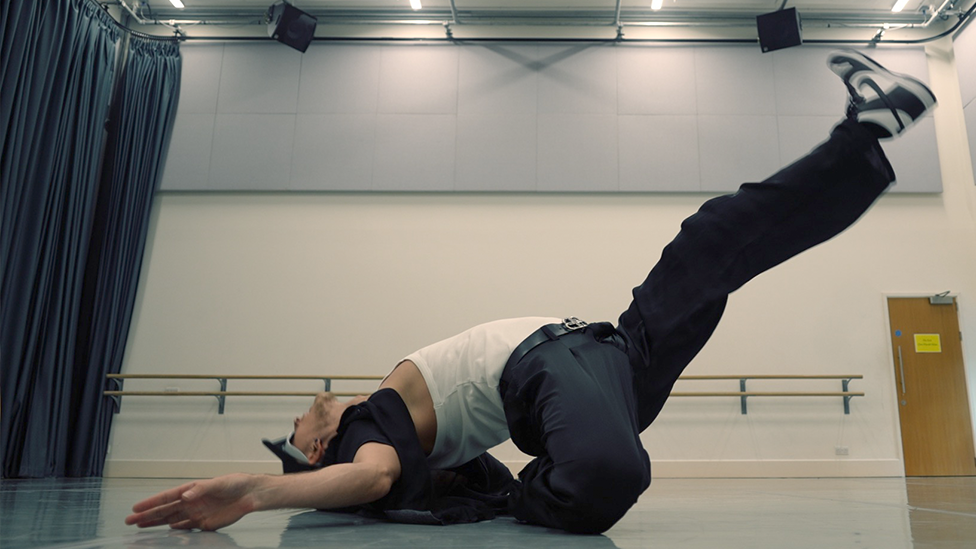
Leighton Rees rehearsing for Cardiff Pride
Leighton was keen to stress the importance of safe spaces like the Welsh Ballroom Community.
"Some people don't know where to go," he said, "and I feel like Ballroom is needed all around the world.
"Times have changed, but there is still a long way to go where people can fully be themselves."
Related topics
- Published16 June 2023
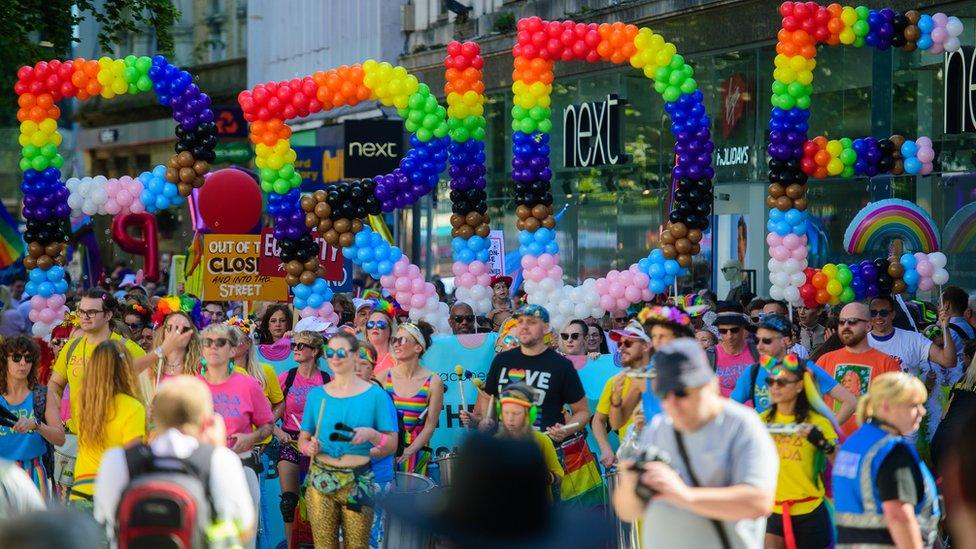
- Published27 August 2022
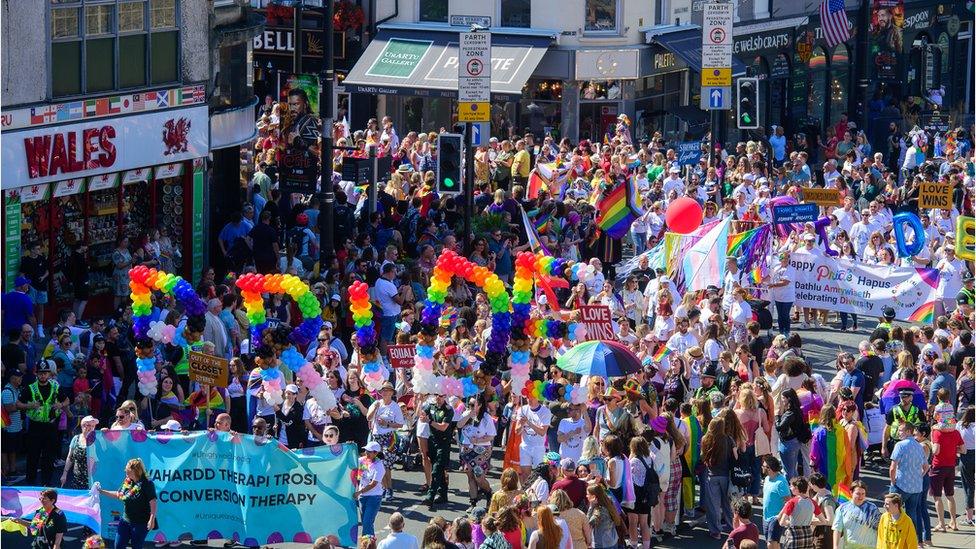
- Published23 September 2021
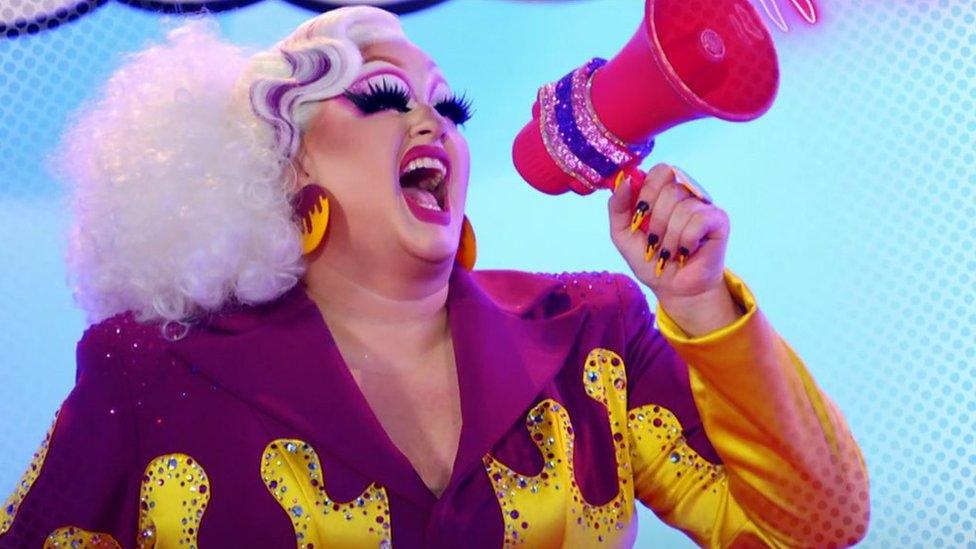
- Published3 February 2021
